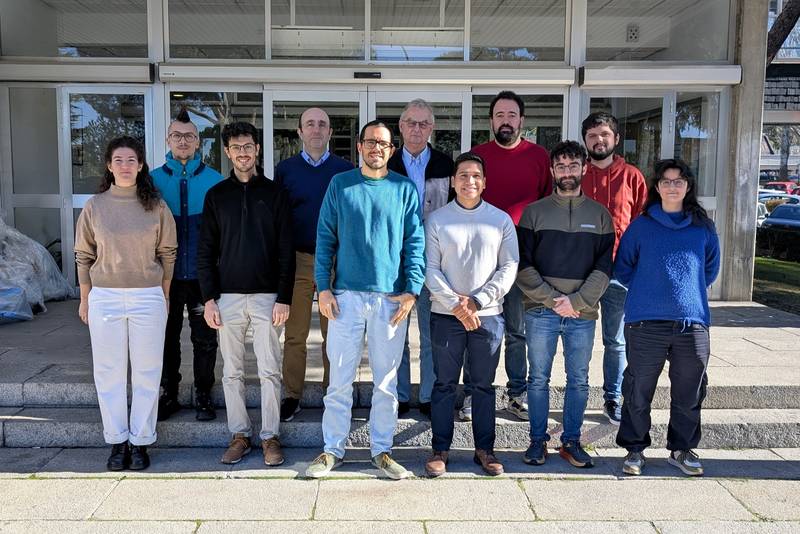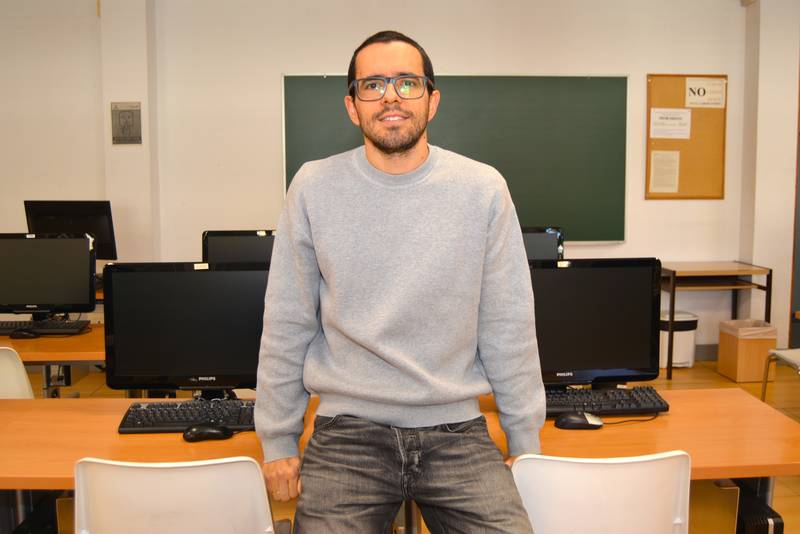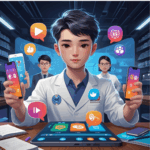“Educational innovation allows students to enjoy learning.”

The Universidad Politécnica de Madrid (UPM) has awarded three educational innovation groups for their work in this field during 2024. One of them is CyberAula, coordinated by Enrique Barra, Associate Professor at the Escuela Técnica Superior de Ingenieros de Telecomunicación (ETSIT), to which almost all its members belong. The group, which previously received the same award in 2017, focuses its activities on computer science-related subjects. Regarding teaching, Barra explains, “Digital tools and interactive resources tend to generate greater interest and motivation among students, as they align more closely with their habits.” He will receive the award on 28 January at the ceremony for the Feast of Saint Thomas Aquinas.

What role does educational innovation play in improving teaching?
Educational innovation plays an essential role by allowing pedagogical methods and tools to be adapted to the evolving needs of students and society. Likewise, it contributes to the gradual improvement of teaching practice, optimising processes so that learning becomes an enjoyable experience and, at times, even occurs unconsciously. Given the rapid advancement of technology— as seen with artificial intelligence— it is crucial to integrate new strategies and resources that foster active learning, collaboration and critical thinking. Innovation makes it possible to design more personalised and effective learning experiences that enhance academic performance and prepare students for real-world challenges.
What are the potential drawbacks of implementing innovative activities?
Indeed, implementing such activities can demand a considerable effort from teaching staff, especially in the early stages. However, this initial investment usually pays dividends over the long term, since optimised methodologies and tools tend to improve efficiency and can reduce teachers’ workloads— for example, through automated evaluation systems or reusable digital resources. In our educational innovation group, we have experienced this firsthand with the development of educational escape rooms and auto-marking tools. Although designing and fine-tuning these resources required substantial work in the first year, they have subsequently been used repeatedly with only minor modifications. This increases student engagement while reducing the teaching effort. Teamwork and mutual support among group members are key to the success and sustainability of these initiatives.
In which subjects are the group’s activities embedded?
Primarily, our activities are linked to modules of the Bachelor’s Degree in Telecommunications Technology and Services Engineering, the Bachelor’s Degree in Data Engineering and Systems, as well as the Master’s Degrees in Network and Telematic Services Engineering and in Telecommunications Engineering. That said, we also apply educational innovation in European, national and private projects.
What have been the most recent projects?
Over the past year, we have undertaken three main projects:
- Educational escape rooms and video games for subjects such as software design, web development and database management.
- Capture-the-Flag games for cybersecurity modules.
- A smart city constructed with Lego, which integrates sensors so that students can work with more realistic data.
Additionally, a few months ago we launched the Erasmus Plus project IGLUE (Implementation of Game-Based Learning Using Escape Rooms), which will help establish straightforward, scalable methods for creating educational escape rooms. We are also about to start another initiative to combat misinformation, in collaboration with two other European universities and three fact-checking agencies, including Maldita.es.
How do students respond to these innovative proposals?
Overall, students receive them very positively. Active methodologies, digital tools and interactive resources substantially increase interest and motivation, since they align more closely with their habits and expectations. They value activities that encourage active participation, collaborative learning and the practical application of knowledge. We have also observed that anything related to artificial intelligence greatly appeals to them. For instance, the AI-based tool we developed for generating multiple-choice questions has been very popular: students simply select the subject, topic and subtopic, choose a difficulty level, and the tool generates questions and provides feedback on incorrect answers. This proves extremely useful for exam preparation and revision.
How is the impact of these activities on learning evaluated?
Assessing impact is crucial for understanding effectiveness and making necessary adjustments. We often solicit students’ opinions via surveys or during tutorials, which gives us direct insight into their experience and perception of the activities. We also measure students’ progress using pre- and post-tests, allowing us to compare performance before and after implementing the activities. Furthermore, we collect and analyse data on participation, grades and usage of digital resources to identify patterns and trends. By comparing results with years in which the tool or innovation was not used, we can determine whether there are improvements in performance and motivation.
What advice would you give to other groups or teachers interested in educational innovation?
One of the most important pieces of advice is to start with small changes rather than attempting to transform everything at once. Educational innovation should be a gradual process, and well-implemented small steps can ultimately have a significant impact. Another recommendation is to make the most of available resources and technology, but always with a clear pedagogical focus. Technology should serve to enhance learning, not be an end in itself. Finally, keeping up to date and engaging in continuous professional development is essential to stay informed of new trends and tools that can enrich teaching— for example, artificial intelligence, which is revolutionising education and which educators must understand and manage effectively.
Source: https://short.upm.es/2iqo5, originally published at its source on 16 February 2025.
Share this:
Latest news



Categories

